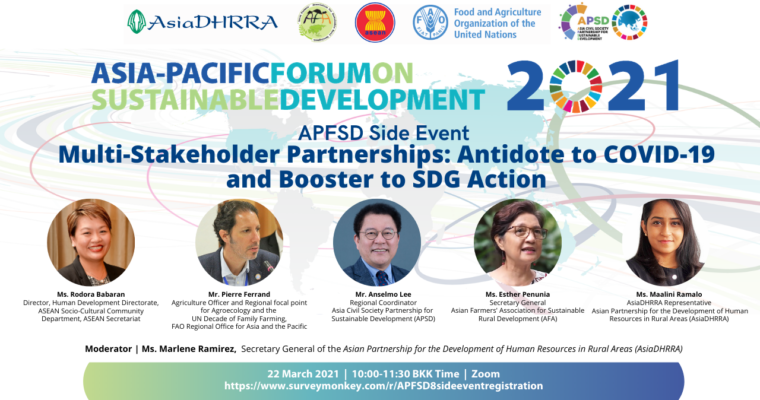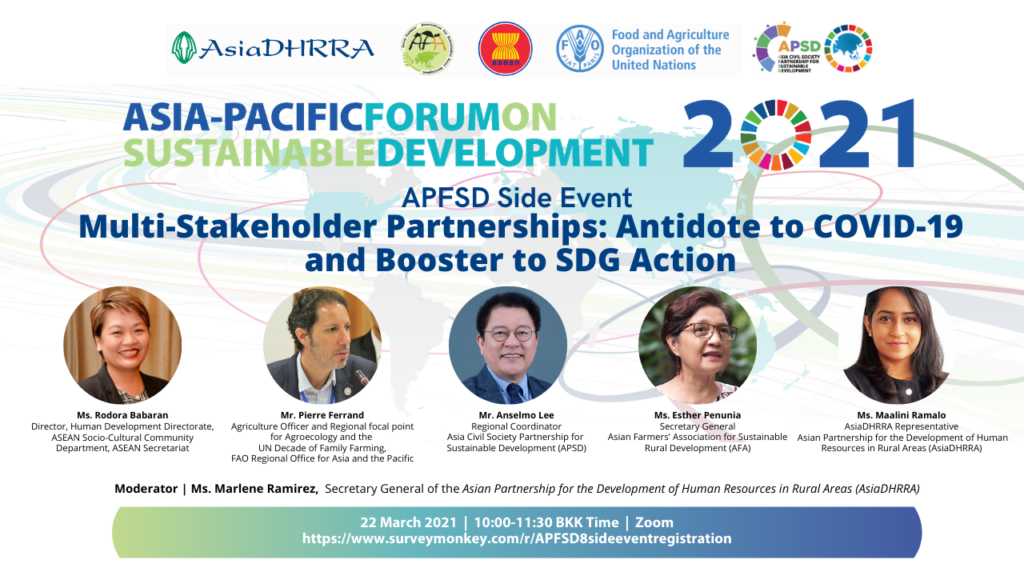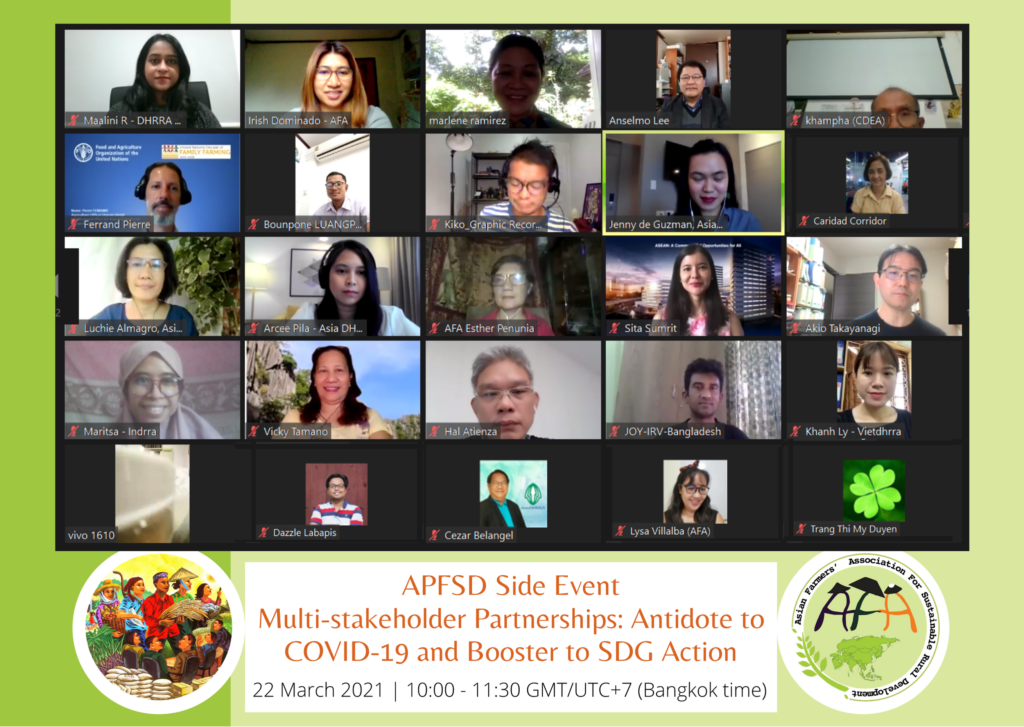NO ONE SHOULD BE LEFT BEHIND, is the common message shared across the discussions during the APFSD Side Event titled “Multi-stakeholder Partnerships: Antidote to COVID-19 and Booster to SDG Action” held on 22 March 2021 via Zoom.
Regional organizations from CSOs, governments, UN agency, and other stakeholders gathered to showcase initiatives on COVID-19 recovery and the SDGs under review and update participants on regional frameworks and action plans to overcome the pandemic. A roadmap reflected an opportunity for strategic partnerships and a set of recommendations was drawn for the HLPF. CSOs shared work on COVID-19 recovery, their advocacy for SDG localization, the importance of inclusive participation and stronger institutions, and shared results of planned VNRs; the important role of agroecology in building community resiliency amid the pandemic was also highlighted.
In her presentation, AFA Secretary-General Esther Penunia highlighted the initiatives of farmers organizations (FO) amid the pandemic including FOs provision of face masks and other hygiene kits to their member’s, direct selling of farmers produce to consumers as well as the creation of farmers markets to help farmers whose livelihood have been heavily affected by the pandemic. Penunia added that during the pandemic, some FOs also shared service extension to their members, partnered with companies and communities, and established call centers to further aid smallholder farmers.
Pierre Ferrand, Agriculture Officer and Regional focal point for Agroecology and the UN Decade of Family Farming of the FAO Regional Office for Asia and the Pacific talked about how to build back greener and more resilient. He shared some impacts of COVID-19 on agriculture including movement restrictions, losses on disposable income, unavailability of migrant workers, severe impacts on food supply, lack of agricultural inputs, and temporary closure markets, establishments such as restaurants and hotels, as well as schools, etc. He then proceeded to share about agroecological approaches for a greener, more resilient, and more inclusive new normal, highlighting three approaches–creation of decent agricultural jobs, replacing external inputs, and connecting farmers to consumers. Ferrand also highlighted the importance of e-commerce platforms that have been emerging due to the pandemic.
Anselmo Lee, Regional Coordinator of Asia Civil Society Partnership for Sustainable Development (APSD) discussed CSOs on COVID-19 and SDGs–the enablers and accelerators such as effective institutions, non-discrimination, participatory decision-making, and access to information. In addition, Lee also suggested means of implementation of these initiatives such as finance, technology, trade, and capacity building.
Meanwhile, Maalini Ramalo of the Asian Partnership for the Development of Human Resources in Rural Areas presented key recommendations such as education and information campaign, small scale psychosocial services, diversification of agricultural production, small social infrastructure, improvement of social protection systems, a collaboration of marketing and business plants, and virtual learning exchanges.
Presenting on behalf of Rhodora Babaran of the ASEAN Secretariat, Dr. Sita Sumrit, shared with the participants the ASEAN comprehensive recovery framework covering the different objectives of the framework that is to articulate the ASEAN recovery strategy and outline the ASEAN recovery strategy to partners and contribute to the ASEAN community vision 2025. Dr. Sumrit further explained the principles of the framework that is focused, balance, impactful, pragmatic, inclusive, and measurable. She also discussed several broad strategies including enhancing health systems, strengthening human security, broader economic integration, accelerating inclusive digital transformation
and advancing towards a more sustainable future.
Overall, the discussions during the forum centered on key messages such as agroecology as an approach to build community resilience, the key roles that RPOs play in relief, rehab, and reconstruction needs of their members and communities, the institutionalization of the rural development plan, optimizing multi-stakeholder platforms, recognizing climate action, women participation, resource mobilization, urban-rural convergence, prioritization of citizen first approach, networking with partners and UNDFF as a framework.
This Asia-Pacific Forum in Sustainable Development side event is organized by AFA, AsiaDHRRA, ASEAN Secretariat, FAO, and APSD.
Watch the entire virtual event below.






Comments are closed